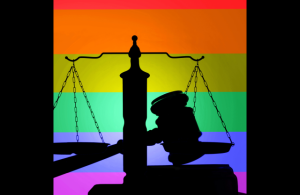The Experiences of ‘Minority’ Professionals in Law, Social Work and Academia
Purpose
This is a research study exploring everyday experiences of inclusion and exclusion, belonging and marginalization within the professions in Canada. The team’s question was how do members of social groups marginalized by Indigeneity, race, social class, ethnicity, disability or sexual/gender identity experience work life within three professions- social work, law and academia. How can processes of inclusion and exclusion be better theorized through examining them in a relatively elite context?
Theoretical Foundations
A critical theoretical perspective was taken. Empirical evidence historically had examined identities from a single essentialized perspective. However, we utilized a notion of social identities as fluid, unstable, contradictory and context-dependent, including identities imposed on one by others. Employing concepts such as Weber’s social closure, Bourdieu’s habitus, and Pierce’s microaggressions were tools we relied upon from the critical theoretical toolbox, but our intention was to develop new theory to advance our understanding in this area.
Micro-aggressions happen every single day…Dozens of them, every single day… It’s the subtle messages that … this is not your place.
Given my particular focus on ethics in the professions, I was especially interested in the intersection of ethics with marginality in the professions. Were these marginalized professionals confronted with ethical issues that were different or non-existent for colleagues who were not from minoritized groups? Were there personal/community values that conflicted with those of the profession and did these lead to any ethical tensions or dilemmas?
Method
Qualitative semi-structured interviews of members of the three professions were conducted regarding their experiences of belonging and marginality, isolation, stereotypes, stigmas and ‘passing’ (e.g. as heterosexual or middle class). The social and cultural capital of ‘minority’ professionals were explored as both challenge and resource, providing potential sources of connection, network, politicization, strength and integrity.
The Team
The research was led by Brenda Beagan (a sociologist in the School of Occupational Therapy), Kim Brooks (a lawyer and former Dean of the Law School) and myself, Merlinda Weinberg, at Dalhousie University, Halifax, Nova Scotia. There were also three research assistants on the team: Brenda Hattie, Tameera Mohamed and Bea Waterfield.
For more information on this research project see: https://diversityinprofessions.wordpress.com/
Initial Findings
One area of an analysis has been on the experiences of racialized and Indigenous social workers. An important finding is the extent that racism pervaded the lives of racialzed social work practitioners. Racism was at the levels of individual racism, but also at cultural, institutional, structural, and epistemological levels, perpetrated not just by service users, but additionally colleagues and managers. Given the emphasis in social work on ethics, the pervasive and egregious incidents of racism committed against racialized social work practitioners lead to important questions about how this problem could be so prevalent in the profession and what needs to be done?
As a group, we have also analyzed disabled academics’ struggles around the disabling contexts of universities in which disability is cast as an individual responsibility. Consequently, generally disabled academics had to navigate accommodations without institutional support. Discourses of efficiency and productivity resulted in self-governance to produce themselves as ‘good enough’ academics.
The final call is the white man’s call… It’s just complicated. I wish we would get to the point where we could be people.
Initial Publications from this Research
Weinberg, M. (submitted). Racisms and Microaggressions in Social Work: The Experience of Racialized Practitioners in Canada. Journal of Ethnic and Cultural Diversity in Social Work.
Waterfield B, Beagan BL, & Weinberg M. (online December 2017). Disabled academics: A case study in Canadian universities Disability & Society.
Other areas of research:
Ethical Challenges during COVID-19
Ethics in Social Work Practice
Structural Barriers The Impact on Ethics for Social Work Practice
Pregnant with Possibility Reducing ethical trespasses in social work practice with young single mothers.


